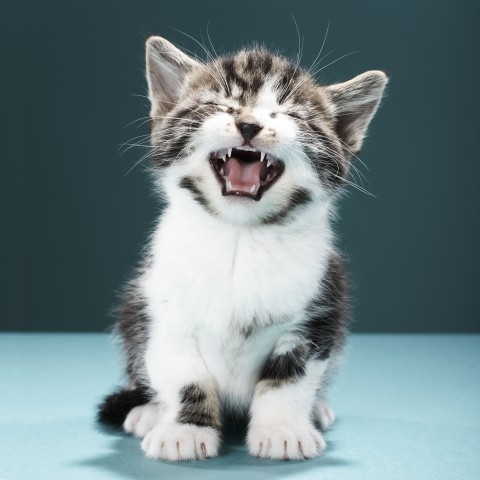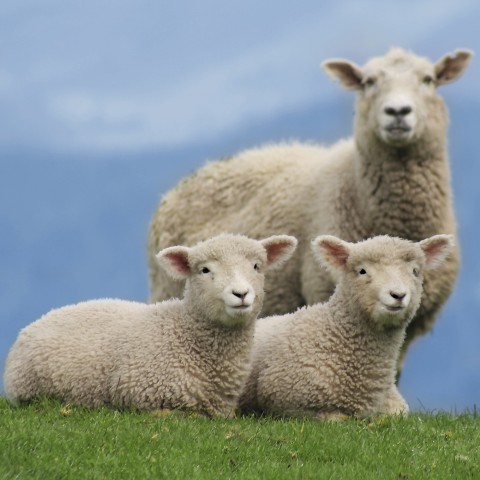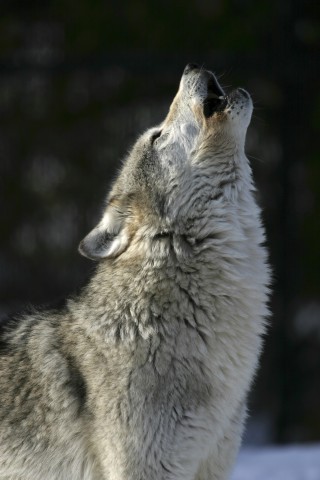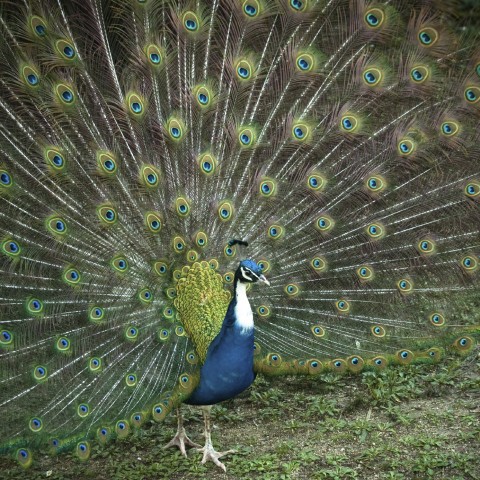
Raise your hand if you like animals! Zvířata (“animals”) are awesome and necessary for so many reasons.
You’ll soon find out that if you want to speak Czech, you’re going to need to learn Czech animal names—even if you’re not a fur/feather/fish lover, you don’t intend to marry a Czech farmer, or you don’t want to talk about your mom’s private minizoo.
Why?
Let’s see: There is a mouse in my room! I am allergic to dogs. I hate fish; I only eat chicken. No, I can’t have that; there’s cow’s milk in it.
One of the first things Czech babies learn is animal sounds. Jak dělá kráva? Bů! (“What does a cow say? Moo!”). And since you should approach learning a new language just like that—as if you didn’t know any other language—let’s explore the Czech fauna together!
 Table of Contents
Table of Contents
- Pets – Mazlíčci
- On the Farm – Domácí zvířata
- Wild Animals – Divoká zvířata
- Aquatic / Marine Animals – Sladkovodní a mořské ryby
- Bugs and Insects – Hmyz
- Birds, Reptiles, and Amphibians – Ptáci, plazi, a obojživelníci
- Talking About Animals
- Animal-Related Idioms and Slang Expressions
- How CzechClass101.com Helps You Learn Czech in a Fun Way
1. Pets – Mazlíčci
More than 58% of us share our home with a pet, and this number is still growing. Have you been to the Czech Republic? If your answer is yes, I’m sure you’ve seen many sleepy figures out in the streets clad in PJs early in the morning or around nine p.m…walking their dogs. Roughly 40% of Czechs have a dog (or dogs), while 23% own a cat. We might seem tough, but we sure love our furry friends!
Let’s look at the most common pets in the Czech Republic:
| English | Czech |
| Cat | Kočka |
| Kitten | Kotě / Koťátko |
| Dog | Pes |
| Puppy | Štěně / Štěňátko |
| Hamster | Křeček |
| Guinea pig | Morče |
| Rat | Potkan |
| Mouse | Myš |
| Spider | Pavouk |
| Tarantula | Sklípkan |
| Chameleon | Chameleon |
| Parakeet | Andulka |
| Cockatiel | Korela |
| Parrot | Papoušek |
| Gerbil | Pískomil |
| Bunny | Králík / Králíček |
| Degu | Osmák degu |
| Fish | Rybička (literally: “tiny fish”) |
| Aquarium | Akvárium |
| Goldfish | Zlatá rybička |
| Tortoise | Želva |
| Turtle | Vodní želva |
| Snake | Had |

Cats and dogs are the most common Czech pets.
2. On the Farm – Domácí zvířata
I grew up in a small village. Everybody had chickens, geese, ducks, and other animals. I used to love collecting fresh, warm eggs, and I got bit by an angry goose (geese are very aggressive, beware!) several times. We had fresh cow milk from our neighbors, and I was always wondering why my grandpa’s bunnies kept disappearing (bless my ten-year-old heart).
Things are much different now. The typical Czech would rather go to the supermarket once a week and watch TV the rest of the time. Some people still have chickens, rabbits, or even a pig, but it’s rare.
One thing I’d like to point out: Many Czechs who speak basic English often confuse a “hen” and a “chicken.” Keep that in mind. Don’t be surprised if you get weird looks when you say, “My chickens lay four eggs a day.” Folks around here think that a “chicken” is either the cute little ball of yellow feathers or a neat package from the supermarket.
Also, there might be “hen soup” on the menu (delicious)—this is correct. Slepičí polévka or slepičí vývar (“hen soup/broth”) and kuřecí polévka or kuřecí vývar (“chicken soup/broth”) are two different things.
If you want to explore more, feel free to check out our lesson on farm animals.
| English | Czech |
| Cow | Kráva |
| Calf | Tele / Telátko |
| Goat | Koza |
| Kid | Kůzle |
| Pig | Prase |
| Piglet | Sele / Selátko |
| Rabbit | Králík |
| Duck | Kachna |
| Duckling | Káčátko |
| Goose | Husa |
| Gosling | House / Housátko |
| Horse | Kůň |
| Stallion | Hřebec |
| Mare | Kobyla |
| Foal | Hříbě / Hříbátko |
| Pony | Poník |
| Donkey | Osel |
| Sheep | Ovce |
| Ram | Beran |
| Lamb | Jehně / Jehňátko |
| Hen (Chicken) | Slepice |
| Rooster | Kohout |
| Chick | Kuře |
| Pigeon | Holub |
You can find the correct pronunciations, more vocab, and sample sentences on CzechClass101.com.

Sheep are quite common farm animals in the Czech Republic.
3. Wild Animals – Divoká zvířata
Although there are many gorgeous creatures roaming the Czech woods (I’m still talking about animals, not fairies), you’ll find some wilderness in the city as well. Sort of. You’ll definitely have a fair share of encounters with squirrels and pigeons.
I remember my first visit to London. It was a gorgeous sunny day, and my friend and I were walking through a park. I was 25 years old when I discovered that not all squirrels are red. In fact, none of the British ones were red. Czech squirrels, on the contrary, are mostly red.
Here’s a quick list of popular wild animals in the Czech language:
| English | Czech |
| Tiger | Tygr |
| Tigress | Tygřice |
| Lion | Lev |
| Lioness | Lvice |
| Lion cub | Lvíče |
| Elephant | Slon |
| Monkey | Opice |
| Gorilla | Gorila |
| Hippopotamus | Hroch |
| Rhinoceros | Nosorožec |
| Giraffe | Žirafa |
| Antelope | Antilopa |
| Penguin | Tučňák |
| Polar bear | Lední medvěd (literally: “ice bear”) |
| Fox | Liška |
| Wolf | Vlk |
| Bear | Medvěd |
| Wild boar | Divoké prase (literally: “wild pig”) |
| Deer | Jelen |
| Hare | Zajíc |
| Squirrel | Veverka |
| Beaver | Bobr |
| Weasel | Lasička |
| Otter | Vydra |

Wolves in the Czech Republic are endangered.
4. Aquatic / Marine Animals – Sladkovodní a mořské ryby
Since the Czech Republic isn’t a tropical paradise or a Scandinavian kingdom, the aquatic population of this lovely little patch in the heart of Europe isn’t very exciting.
The most common Czech fish is the carp, which also happens to be the traditional Czech Christmas food.
In case you’re struggling with pronunciation, you’ll find help here.
| English | Czech |
| Fish | Ryba |
| Freshwater fish | Sladkovodní ryba (literally: “sweetwater fish”) |
| Deep-sea fish | Mořská ryba |
| Salmon | Losos |
| Lobster | Humr |
| Shrimp | Kreveta |
| Seahorse | Mořský koník |
| Shark | Žralok |
| Dolphin | Delfín |
| Whale | Velryba |
| Orca | Kosatka |
| Pike | Štika |
| Catfish | Sumec |
| Carp | Kapr |
| Trout | Pstruh |
| Mackerel | Makrela |
| Starfish | Mořská hvězdice |
| Shellfish | Mušle |
| Oyster | Ústřice |
| Roe | Jikry |
5. Bugs and Insects – Hmyz
Here’s the good news: This country isn’t humid, plus it’s not Australia. If you’re not interested in meeting a giant spider or a bug that’s the size of your uncle Bob’s palm, you’ll love it here.
However, this country is not bug-free. Make sure you check out the list of six- (or more-) legged creatures below.
By the way, writing all these animal names in Czech made me realize something quite adorable:
“Nightmares” are called “night moths” in Czech (“nightmare” – noční můra).
| English | Czech |
| Bug | Brouk |
| Spider | Pavouk |
| Bee | Včela |
| Bumblebee | Čmelák |
| Wasp | Vosa |
| Ladybug | Beruška |
| Fly | Moucha |
| Firefly | Světluška |
| Moth | Můra |
| Butterfly | Motýl |
| Mosquito | Komár |
| Ant | Mravenec |
| Flea | Blecha |
| Cockroach | Šváb |
6. Birds, Reptiles, and Amphibians – Ptáci, plazi, a obojživelníci
I feel like the title suggests this is a list of prehistoric animals. No. It contains words that represent beautiful creatures that chirp, look cute, and defy gravity on a daily basis, and some other creatures that…well…are our friends, too.
Did you know that there’s only one venomous snake in the Czech Republic? An adder. The bite wouldn’t, like, kill you (unless you’re a baby, which, I suppose, you’re not), and adders are endangered and extremely timid. The only thing that could possibly scare you on your hike in the Czech Republic is the lack of trash cans.
Now, here are the most common birds, reptiles, amphibians, and similar members of the animal kingdom.
| English | Czech |
| Bird | Pták |
| Reptile | Plaz |
| Lizard | Ještěr |
| Swan | Labuť |
| Hummingbird | Kolibřík |
| Seagull | Racek |
| Dove | Hrdlička |
| Pigeon | Holub |
| Crow | Vrána |
| Raven | Krkavec |
| Eagle | Orel |
| Hawk | Sokol |
| Buzzard | Káně |
| Stork | Čáp |
| Peacock | Páv |
| Owl | Sova |
| Sparrow | Vrabec |
| Blackbird | Kos |
| Frog | Žába |
| Toad | Ropucha |
| Snail | Hlemýžď (terminus technicus) / Šnek (a colloquial word that most people use when talking about these slimy creatures with “a house”—domeček, which literally means “tiny house”) |
| Slug | Slimák |
| Crocodile | Krokodýl |
| Alligator | Aligátor |

Peacocks can be seen in most parks surrounding chateaus all over the country.
7. Talking About Animals
Now that you know the names of animals in Czech, let’s learn a few more useful animal words…
Animal Body Parts
| English | Czech |
| Beak | Zobák |
| Tail | Ocas |
| Horn | Roh |
| Antlers | Parohy |
| Fur | Srst |
| Feathers | Peří |
| Hooves | Kopyta |
| Mane | Hříva |
| Claws | Drápy |
Animal-related Verbs
| English | Czech |
| To scratch | Škrábat se |
| To bark | Štěkat |
| To meow | Mňoukat |
| To sing (chirp) | Zpívat |
| To bite | Kousat / Štípat |
| To peck | Zobat / Klovat |
| To dig | Hrabat |

Pes u veterináře. – “A dog at the vet.”
8. Animal-Related Idioms and Slang Expressions
The Czech language is very playful, and animal idioms are particularly popular. They’re fun, but let’s be honest: Any idiom might cause a lot of confusion, and possibly even an embarrassing situation.
Here’s a list of the most common ones.
|
|
|
|
|
|
|
|
|
|
|
|
|
|
9. How CzechClass101.com Helps You Learn Czech in a Fun Way
Stop trying to learn Czech. Learn Czech. Get smarter tools, study smarter, and believe in yourself. The sky’s the limit!
I hope you enjoyed this article and learned something new! In case this wasn’t enough for you, please check out our Basic Bootcamp—the very basic grammar and vocab you’ll need in five compact lessons.
If you’re taking your Czech studies seriously, you might grab a Czech grammar book or learn online (the latter of which is way more convenient). Learning a new skill has never been easier. Just grab your phone and get to work!
CzechClass101.com makes learning Czech easy, exciting, and fun. With us, it’s not about endless memorizing or thick textbooks. Learn Czech the better way—with us, you’ll make progress faster than you could imagine!
What can you find here?
- English-to-Czech translation and pronunciation tips/tricks
- Over 630 audio and video lessons
- Vocabulary learning tools
- Spaced repetition flashcards
- Detailed PDF lesson notes
Sign up now; it’s free!
One last thing: Let us know in the comments what your favorite animal is! Do you remember its name in Czech?










